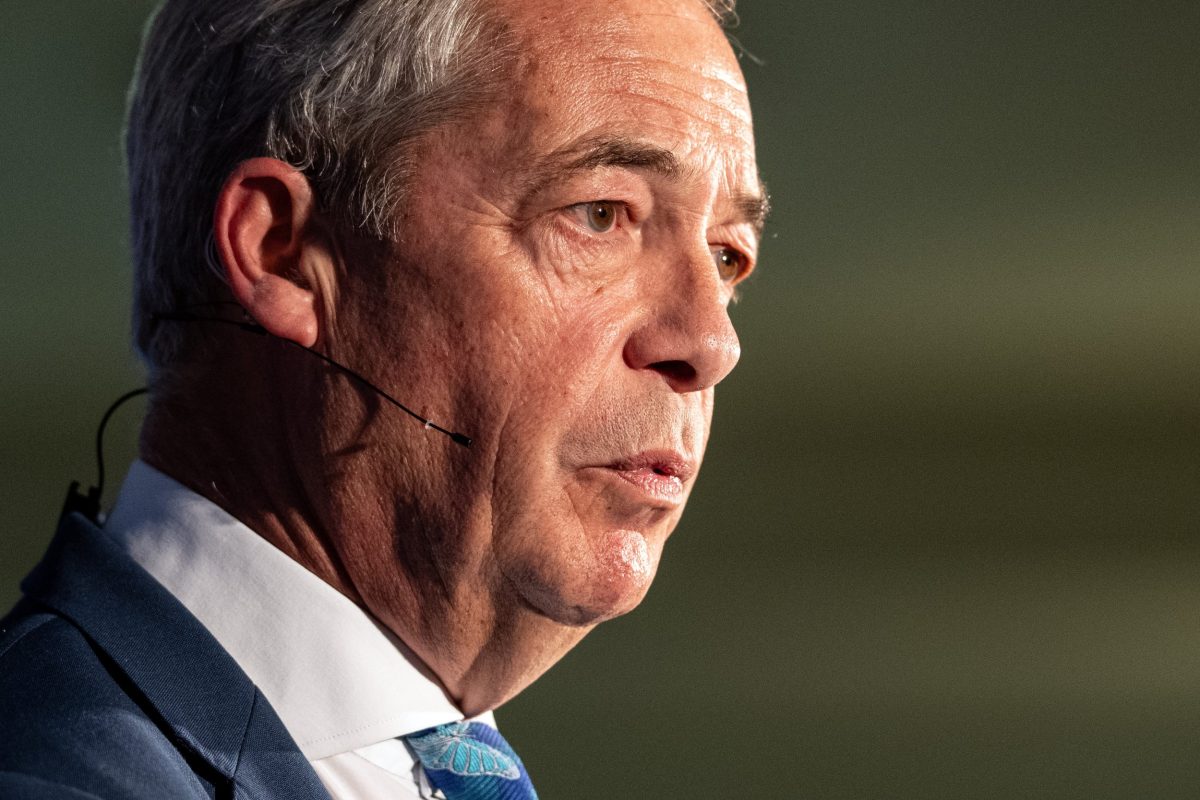Nigel Farage announced a significant policy shift on June 17, 2024, during a speech in Merthyr Tydfil, Wales. At that time, he presented a “contract” outlining Reform UK’s pledges to voters ahead of the general election. Farage emphasized the term “contract” was chosen deliberately, as “manifesto” had lost its meaning due to repeated political failures to deliver on promises. Fast forward to this week, and Farage took the stage in the City of London to reveal that he would abandon the party’s central commitment to implement tax cuts totaling £90 billion.
Reform UK has been gaining traction in polls, often leading ahead of the Labour Party and pushing the Conservative Party into third place. However, as the election approaches, concerns about the party’s lack of experience may become more pronounced, offering opponents an opportunity to capitalize on this vulnerability. Farage’s tax policy reversal is part of a broader strategy to align the party’s anti-establishment image with a credible policy framework that can appeal to mainstream voters. Reform believes that this balance is crucial for Farage’s potential ascent to No 10.
Addressing Economic Criticism
The decision to retreat from ambitious tax cuts had been in the works for some time, reflecting mounting criticism of Reform UK’s economic policies. Among these was a proposal to raise the personal tax allowance to £20,000, which the Institute for Fiscal Studies estimated could cost up to £80 billion. Reports in May indicated that independent economists warned the party’s plans could trigger a market shock comparable to the fallout from Liz Truss’s brief premiership. Labour has seized upon this narrative, framing Reform as a potential return to economic instability.
In his recent speech, Farage sought to counter these claims by declaring that substantial tax cuts were “not realistic at this current moment in time.” He outlined a more “modest” approach, proposing initial measures such as eliminating inheritance tax on family farms. This cautious pivot aims to stabilize the party’s electoral position while allowing time to accumulate savings from reductions in benefits and public sector size.
While navigating potential backlash over trustworthiness, Farage’s leadership within Reform has enabled him to make this strategic shift without apparent internal discord.
Support from Party Allies
Linden Kemkaran, the leader of Kent County Council and a prominent member of Reform, expressed support for Farage’s change in direction. Speaking ahead of the announcement, she remarked, “I think Nigel has been very sensible. The world has changed beyond recognition. It’s wise to be flexible at this stage of our policy planning.”
Even within right-leaning circles that typically advocate for tax cuts, the party’s policy adjustment has not elicited significant backlash. John Longworth, former director-general of the British Chambers of Commerce and a former member of Farage’s Brexit Party, endorsed the move, stating, “They are becoming more responsible and positioning themselves for potentially being in government.”
A Labour MP acknowledged that the tax cut reversal was a “smart political move,” suggesting that it could help Farage avoid the perception of incompetence. However, Labour intends to leverage this shift to frame Reform as untrustworthy, recalling past election pledges as evidence of inconsistency.
Farage’s positioning toward the political center, alongside a notable influx of former Conservative politicians into Reform, has prompted critiques from Labour, which claims the party is evolving into a “Tory Party.” Labour plans to highlight the number of ex-Conservatives within Reform, positioning it as evidence of a diluted platform.
Research from the More in Common think tank indicates that Reform’s voter base is shifting. Approximately 20% of their supporters come from the Conservative Party, with a slightly smaller percentage originating from Labour. This expanding base presents a challenge for Reform, as their economic stances vary significantly between these groups.
While about two-thirds of Labour voters who switch to Reform favor wealth redistribution, only 23% of former Conservative supporters share that belief. This divergence underscores the party’s struggle to balance a low-tax, low-spend identity with a broader appeal.
The Economic Landscape Ahead
The economy remains a weak point for Reform UK, as polling indicates that while the party is trusted more than its rivals on migration, it falls behind on economic issues. Despite this vulnerability, the party’s polling success continues, largely overshadowed by the prominence of migration in public discourse.
As the general election approaches, scrutiny of how Farage plans to navigate economic policy will intensify. His recent pivot toward the center may risk alienating some long-time supporters who favor a more radical tax agenda. The challenge lies not only in maintaining loyalty among core voters but also in ensuring that newer supporters do not gravitate back to their former parties.
Recent data highlights this risk, revealing that a significant portion of early Reform voters demonstrate strong loyalty, with 56% rating their likelihood of voting for the party at the highest level, compared to 43% of those who joined since the last election. Additionally, newer supporters tend to prioritize stability and economic credibility, which may influence their voting decisions as the political landscape evolves.
As Reform UK strives to solidify its position in the upcoming election, Farage’s ability to navigate these complexities will be pivotal in determining the party’s future and his aspirations for leadership.







